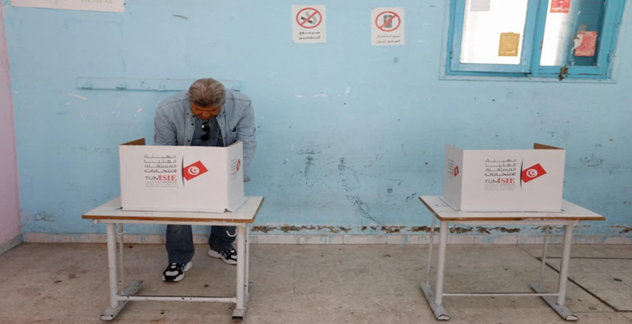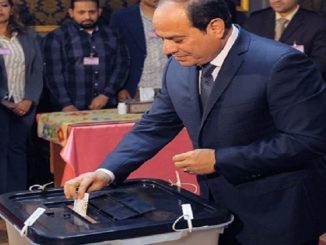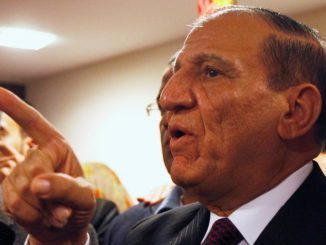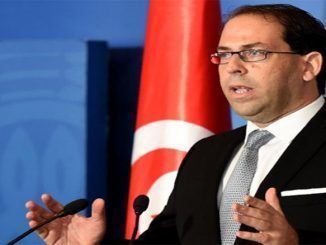
Tunisian electorates deliver crushing rebuke to President Kais Saied by failing to show up to vote in the country’s parliamentary elections
Tunisia’s parliamentary elections on Saturday registered one of the lowest electoral turnouts ever recorded in the world after fewer than nine percent of eligible voters decided to show up.
The vote was akin to a referendum on President Kais Saied’s vision to re-make Tunisian politics. Potential voters, however, largely stayed away from the voting booths.
The vote was also boycotted by most opposition parties, which accused Saied of reversing the democratic progress that had been under way since 2011.
Saied seized power last year in what opponents have labelled a coup, leaving proponents of democracy in the country with few options.
Monica Marks, Middle East politics professor at the New York University Abu Dhabi, described the mood as “comatose sarcasm”, according to Middle East Eye.
“Most people I asked about the elections have responded with ‘what election?'” said Marks.
“Either because they genuinely don’t know there is an election or they know perfectly well there is an election, but they view it as a sham. They are coping with sarcasm. A lot of Tunisians are disengaged.”
After sacking the prime minister and suspending parliament in July 2021, Saied pushed through a constitutional referendum that enshrined his one-man rule earlier this year.
But the low turnout from Saturday’s parliamentary polls starkly contrasts with the 2019 results, when turnout was 42 percent. It will also cast many questions about Saied’s continuing grip on power.
The current elections are an “absurd far cry from where we were in 2019. It’s shocking and heartbreaking,” said Marks.
The opposition might sense an opportunity, but Tunisians haven’t forgotten about their stint in power, she said.
“A lot of Tunisians feel they tried permutations of multi-party democracy over the last 10 years, but none of the parties really delivered. So they felt jaded and disillusioned.”
More worryingly, whatever vestige of popular support or goodwill Saied might have had has seemingly evaporated.
“Tunisians also feel increasingly jaded and disillusioned by Kais Saied’s one-man rule because Saied hasn’t been able to deliver either,” Marks said.
On most metrics, Tunisia is worse off today than when Saied carried out his coup in July 2021. The economy is in dire straits, and the government has turned to the International Monetary Fund for assistance.
While Saied lost constitutional legitimacy when he closed parliament in July 2021, said Marks, on Saturday “we might have seen him lose any claim to popular legitimacy. Therefore, he cannot possibly claim that the Tunisian people are enthused about his agenda.”
Saied’s single-minded determination to introduce an obscure political model while largely ignoring the goals of the 2011 revolution could also be his undoing.
Under Saied’s electoral reforms, party lists are prohibited and political parties couldn’t run lists.
“The only people who ran were individual esoteric loyalists of Saied or people who were jobless and wanted a salary. Around 10 percent of those running for elections are unemployed,” Marks said.
With its lack of electoral legitimacy, the incoming parliament will also have a hard time holding the president accountable, in no small part because Saied has rigged the rules.
“Under the constitution, the parliament has no role in approving the government, impeaching the president or holding the executive to account. The very low turnout of today’s elections severely undermines the democratic legitimacy of an already powerless parliament,” Said Benarbia, the MENA regional director at the Geneva-based International Commission of Jurists, said.
The number of Tunisians leaving the country in the past two years has dramatically risen, with experts suggesting this trend is likely to be sustained over the foreseeable future.
Oussama Khlifi, a member of the former parliament for the Qalb Tounes Party, speaking to MEE, described the elections as a “total disavowal of the dictatorial regime of Kais Saied”.
“Kais Saied must step down immediately. We must organise presidential and legislative elections as soon as possible and stop this dangerous roadmap as soon as possible, as this dictator must go,” Khlifi said.
But short of another revolution or Saied deciding that he has had a change of heart, it is unclear what the opposition can do to make their way into power again.
Saied’s friendly meeting with US Secretary of State Antony Blinken on 14 December in Washington and then later with President Joe Biden is indicative that, abroad at least, pressure on the Tunisian leader to change course remains limited at best.
Domestically that hasn’t gone unnoticed.
“The world must understand that we are the real democrats and its protectors [of democracy], and our fight will continue until we get back our democracy, to finally bring to the people what they are interested in – fairer development and better economic prospects,” said Khlifi.
Saied’s vision of democracy has been stripped down to almost its basic function, with little chance of shaping the system in any way other than according to his vision.
“The international community must immediately urge a return to a democratic constitutional order, based on effective checks and balances and the full, unimpeded participation of political parties in the democratic process,” said Benarbia.



